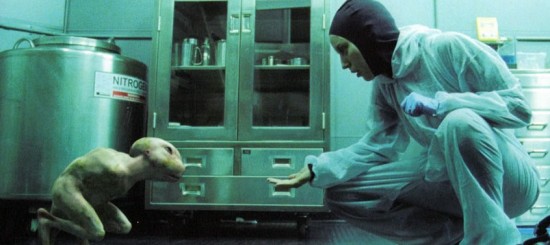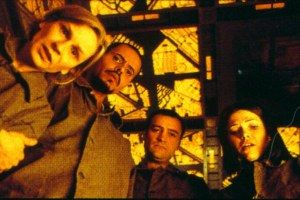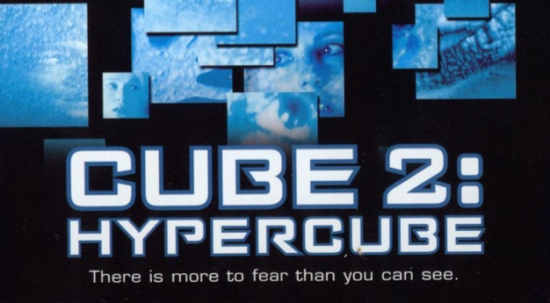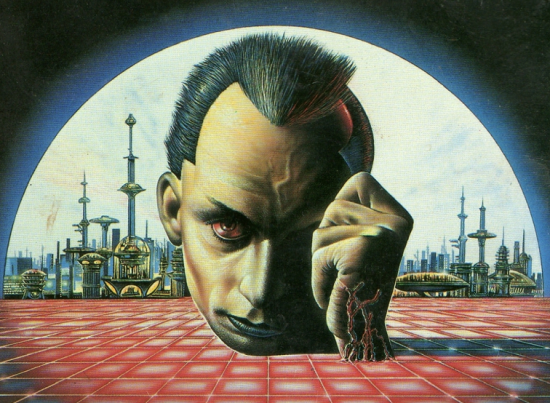Extended Video Interview: Vincenzo Natali, Director Of Splice
A few weeks ago, after Splice screened in Boston for the first time, I had the opportunity to sit down with director Vincenzo Natali for a lengthy, 35-minute long interview. Vincenzo spoke about how he first got his start directing films, his attitude towards the Cube sequels, the themes of Splice, and his approach towards adapting Neuromancer and High Rise. Plus, some insights about the ending of Splice (with spoilers clearly marked in the video).
Hit the jump for some highlights, plus the full video interview. Splice is out now in theaters everywhere.
On making the sci-fi cult hit Cube:
"I knew that my first film was going to have a very low budget, and therefore it was probably going to have to take place on one set. But I knew that also that I was also not the kind of filmmaker who would do something like My Dinner with Andre. So, I had a little brainstorm one day, where it occurred to me, "Well, what if one set doubled for many?" So I would have the advantage of shooting in one space, but I would also be able to move my characters from place to place. This made me think of a maze of identical rooms, and therefore a symmetrical maze, and therefore a cube and so on. It took awhile to, from that kernel of an idea, turn it into a three-act structure. But with the help of some friends, I did...
I actually had the best and worst of all possible experiences, because my first time out I got to do exactly what I wanted to do. I made the film with total creative freedom because it was in film school, and the film, for the scale of the movie it was, it was quite successful. So it was very hard for me to look back. And I actually found making my second, third, and fourth films much harder than making my first...Because I got to do what I wanted to do in the best possible way, I could never go back. I could never do a remake or a sequel to something, something that I wasn't impassioned about. It felt like a step backwards."
On the sequels for Cube:
"When Cube came out, the American company that distributed it decided they wanted to do a sequel and they approached me. I said "No, thanks." First of all, I'm not a huge fan of most sequels. And then I just didn't think it was a story that sequelized well. I mean, it was hard enough making one movie out of that premise, and believe me, if you've ever shot in a cube, you don't want to do it more than once. It's not a lot of fun. It was actually a very hard film to make...So, I said "No, thank you," and in some respects, I regret having said that because now, people come up to me all the time and say, "Did you direct Cube 2 and Cube 3?"...that happens all the time. I mean, for better or worse. I'm not judging those films. I can't claim ownership over them and I don't like it when people assume I made them. So, that was a lesson. If by some incredible fluke Splice got a sequel, I would remain involved...
Honestly, maybe it's better that other people did it, because they were able to approach the material in a fresh way. But my feeling was and is that it's like Jaws. You're in the water with a shark and a couple people. There's only one story to tell, in my opinion. You could have spun off into some very esoteric, interesting, weird places...Once you went out of the cube, virtually anything could be out there. Probably it's not a cube at all. Probably it's something much more bizarre, and abstract. But honestly, I never put serious thought into it."
 On the protagonists of Splice:
On the protagonists of Splice:
"I actually, in some regard, I think that Clive and Elsa, the scientists characters in the film, are very courageous, and to be admired, and quite heroic. Because they really put everything on the line to create Dren, to create this creature, with the best of intentions, because there are truly medical benefits to be had. And also in the pure desire to break new ground, all of which I think is admirable. The only problem is that while they're incredible clever, they're not all that wise. They're a little bit immature, and so while they have a complete understanding of the chemical building blocks of life, they don't really understand what life is, and that's where things go wrong. In a sense, I don't think it's the technology that's a problem. It's actually Clive and Elsa's own latent demons that are the reason why things go so terribly wrong."
"For me, it's a story of redemption, if you want to get down to the core element of it. I think in terms of how you approach Neuromancer now, post-Matrix, post-all the other films that have poached from it, in the 21st century (because the book was written in 1984), I think you have to take those things and use them to your advantage, because what they give you, what The Matrix, for instance, gives you is the opportunity to make Neuromancer in a culture that is already aware of what The Matrix is. I mean, the very word "matrix" is in Neuromancer. It was borrowed by the Wachowski brothers for their film. I think that's a good thing, because I don't even know how someone would have been able to make that film 10 years ago or 15 years ago, because it's so abstract. I don't even know how people understood the book when it first came out. I think I read it in the late 1980s, but in 1984, how would people even understand it, because it was just so far ahead of the curve?
I think when you read it now, it still feels very relevant, maybe in some ways more relevant, because so much of what it predicted has come to pass. And therefore, my approach to it would be to be very realistic. I think The Matrix is a wonderful film, but it absolutely takes place in a comic book universe...everything about it, in the best possible way mind you, but really I think it's a very heightened reality...
[Neuromancer] is a future reality, but I don't want to glamorize it, I don't want to inject steroids into it. I want it to feel very palpable and real, and still exciting, of course, but I think if I had to make a comparison, a little more of the Blade Runner type universe, which is kind of a more adult-type of movie. And that's what I think this film should be because it's dealing with very important and exciting themes. And I think that's where my take on it and what excites me about the book will distinguish it from other films, in so much as, in my mind, Neuromancer is really about our post-human future. It's about how we, in the future, are going to relate to machine consciousness. In the same way that Splice is sort of a treatise on how we're changing our bodies, Neuromancer could be a treatise on how we're changing our minds, evolving our consciousness. I see tremendous potential for it. I actually think the time is now.
Also, I think Avatar has been a great harbinger for smart science fiction films. I know some people disagree with me, but honestly I think that film could not have been made by anyone other than James Cameron, and now that it has been made and it's such a success, it proves that hard science fiction — and that film is full of ideas — can work on a large commercial scale. And Neuromancer is definitely within that zone....
I actually really started to break down the book, now that this is looking like it might happen, and I actually don't think you need to stray too far from the book. I think you have to add some connective tissue, and I think that the ending needs to be finessed. I had a conversation with William Gibson about a week and a half ago, and he kind of agreed. You have to retool the ending a little bit. But basically I think the structure is there. And I actually see my version, if it were to be made, as having a little bit more of a literary kind of a structure. There would be a little bit of trickery with the timeline, and we would delve into characters' pasts and then come back into the present. I think that's the way to approach it. And that really excites me, because as somebody who watches a lot of movies and a lot of science fiction films, I'm really getting tired of the same old tropes, the same old kind of structures. If you're going to experiment with narrative structures, this is the movie to do it with."
Here's the full interview:



